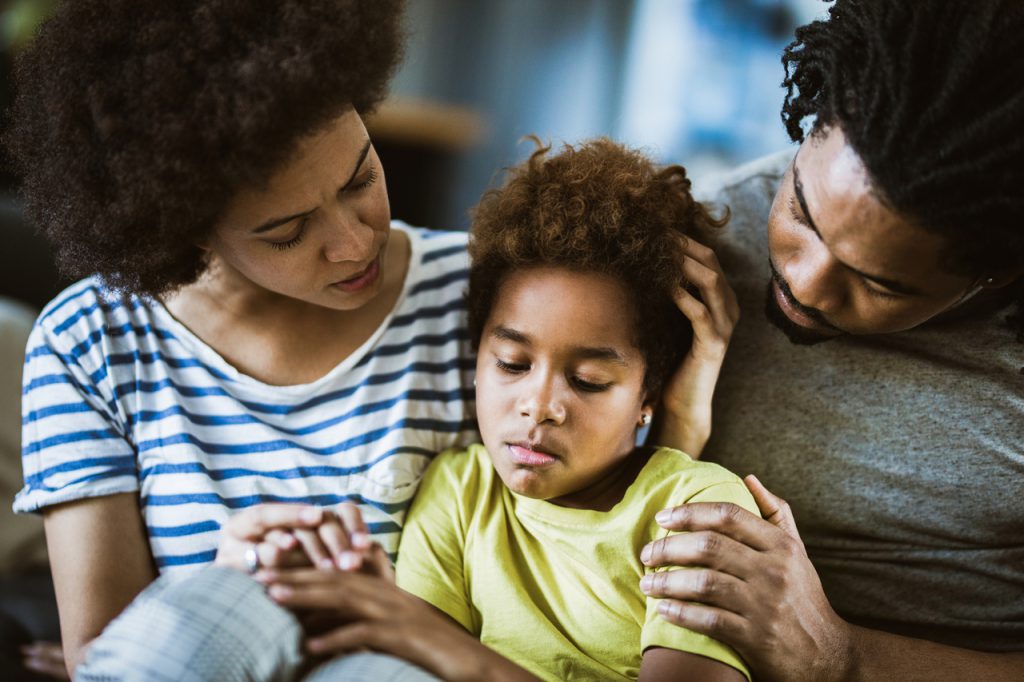Five Ways to Help Your Child Deal with Trauma During COVID-19
by Carolyn Lee May 18, 2020

The COVID-19 pandemic has left a lasting impression on everyone.
Most adults are navigating working from home and managing personal responsibilities. In addition to this, parents are also tasked with monitoring children, who are being home-schooled.
Many children have also experienced a dramatic shift in routines. While some children can adjust easily to changes, others have a difficult time.
We are looking at five ways to help those children deal with trauma.
According to Integrated Listening, “trauma is the response to a deeply distressing or disturbing event that overwhelms an individual’s ability to cope, causes feelings of helplessness, diminishes their sense of self and their ability to feel the full range of emotions and experiences.”
The Centre for Disease Control (CDC) notes that COVID-19 stress can result in the deteriorating of mental health problems, changes in eating patterns, struggle with sleeping or concentrating, or the worsening of chronic health problems.
Some of the changes that adults stress over include the loss of jobs, changes in socialising with others, and new work routines.
Unfortunately, children are not exempt from COVID-19 related challenges.
Some children are susceptible to stress caused by new routines such as home schooling, isolation from friends, and losing family members or teachers, who get sick or die from the virus.
How to identify signs of distress
The response to trauma varies among adults and children; however, there are common symptoms.
Some of the common symptoms of trauma in children include anger, loss of interest in activities they love, friends or family; nightmares or difficulty sleeping.
Other symptoms are headaches, stomach aches, fearfulness, struggling with school or homework, disruptive or aggressive behaviour.
Five useful tips to help them deal with trauma
To help your children cope with trauma, try the following:
1. Provide reassurance that they are loved and that you are doing your best to protect them.
2. Ease them into new routines by discussing why the changes are happening.
3. Respond honestly to their questions, and when problems arise, avoid physical punishment.
4. Monitor their activities to find out what some of the triggers are and remove them. Triggers may include terrifying news or video footage of people dying from the virus that may circulate via social media platforms.
5. Significantly reduce access to watching or listening to graphic content, especially before bedtime.
When should you seek treatment?
Children deal with trauma in different ways. Some are quite resilient and can, with time, resume regular interactions with others.
If you notice the signs or symptoms lasting a week or longer; or if there is a noticeable increase in distress, you should seek professional help for your child.
Speak with a mental health counsellor, therapist or a professional who is trained to recognise and treat trauma in children.
These professionals will help to identify if other underlying issues are contributing to your child’s distress. They will also offer guidance on the best course of treatment.
We hope that these tips will help parents to understand better what is happening if they notice signs of trauma in their children. The content of this article is for informational purposes only.
To find a therapist or related services near you, search Find Yello.
Sources: Child Mind Institute, Help Guide, Child Welfare, ADAA, CDC and John Hopkins Medicine.








